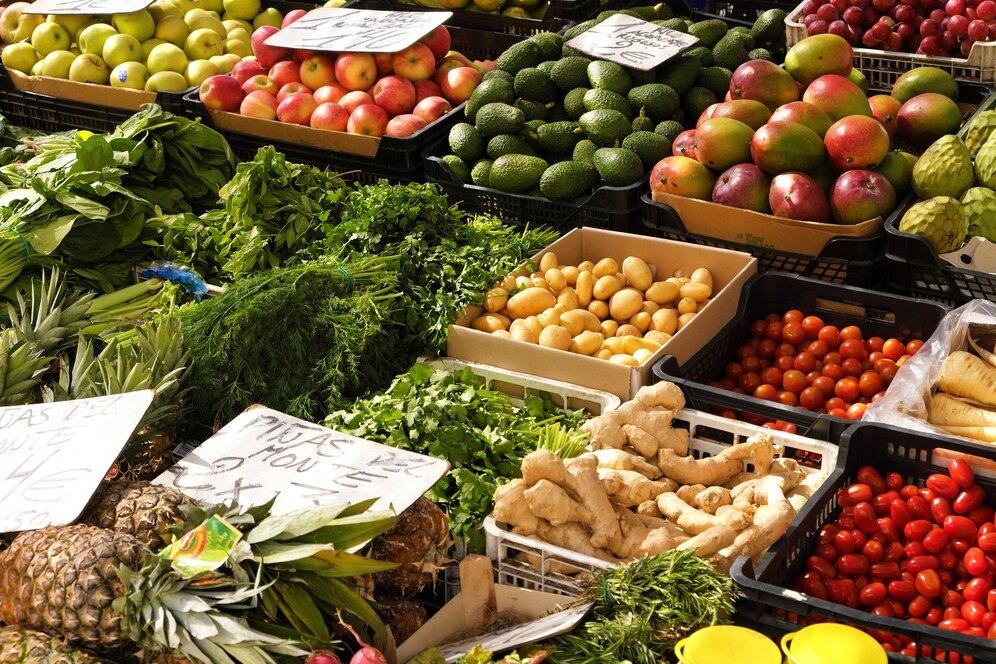Argentina Fruits and Vegetables Market Size, Share, Growth, Trends, Demand and Forecast 2025-2033

Argentina Fruits and Vegetables Market Overview
Base Year: 2024
Historical Years: 2019-2024
Forecast Years: 2025-2033
Market Growth Rate (2025-2033): 4.80%
The Argentina fruits and vegetables market size is projected to exhibit a growth rate (CAGR) of 4.80% during 2025-2033. The increasing health consciousness, the rising demand for organic produce, advancements in agricultural technology, strong export opportunities, government support for sustainable farming practices, and the growing popularity of plant-based diets are some of the major factors driving the market growth.
For an in-depth analysis, you can refer sample copy of the report: https://www.imarcgroup.com/argentina-fruits-vegetables-market/requestsample
Argentina Fruits and Vegetables Market Trends and Drivers:
The Argentina fruits and vegetables market is experiencing robust expansion, fueled by the country’s diverse agro-climatic conditions and increasing global demand for fresh produce. With vast fertile regions like the Pampas and Mesopotamia, Argentina is leveraging its natural advantages to cultivate a wide variety of crops, including citrus fruits, apples, and leafy greens. Export-oriented strategies are playing a pivotal role, as international buyers prioritize sourcing from regions with stringent quality standards and sustainable practices. Government initiatives to modernize agricultural infrastructure and streamline export protocols are further enhancing competitiveness. Simultaneously, partnerships with international trade organizations are opening doors to new markets, particularly in Europe and Asia, where Argentine grapes, pears, and blueberries are gaining traction. The rising adoption of certified organic farming is also aligning with global consumer preferences for chemical-free, nutrient-rich produce, positioning Argentina as a reliable supplier in the premium segment.
Technological integration is emerging as a transformative force within the sector, with farmers increasingly adopting precision agriculture tools to optimize yield and resource efficiency. Innovations such as IoT-enabled sensors, drone-based crop monitoring, and AI-driven pest management systems are reducing waste and improving crop resilience against climate variability. This shift toward data-driven farming is complemented by investments in cold chain logistics and post-harvest technologies, ensuring longer shelf life and minimizing spoilage during transit. Additionally, collaborations between agricultural cooperatives and tech startups are fostering knowledge-sharing platforms, enabling small-scale growers to access real-time market insights and sustainable practices. The growing emphasis on circular economy models—such as repurposing agricultural by-products into biofuels or animal feed—is further enhancing the sector’s sustainability profile. These advancements are not only boosting productivity but also attracting foreign investors keen on supporting scalable, eco-friendly supply chains.
Changing consumer behaviors, both domestically and internationally, are reshaping market dynamics. Within Argentina, urbanization and rising health consciousness are driving demand for convenient, ready-to-eat fruit and vegetable products, prompting retailers to expand their fresh produce offerings. Globally, the surge in plant-based diets and clean-label trends is amplifying interest in Argentine avocados, citrus fruits, and specialty crops like quinoa. The country’s counter-seasonal advantage—supplying Northern Hemisphere markets during their off-seasons—is strengthening its role as a year-round provider. Furthermore, strategic branding campaigns highlighting Argentina’s commitment to ethical farming and traceability are resonating with discerning buyers. As e-commerce platforms and direct-to-consumer models gain momentum, producers are increasingly bypassing traditional intermediaries, ensuring fresher deliveries and higher profit margins. These evolving consumption patterns, paired with Argentina’s agricultural ingenuity, are cementing its position as a dynamic player in the global fruits and vegetables landscape.
Argentina Fruits and Vegetables Market Industry Segmentation:
Product Insights:
- Fresh Fruits and Vegetables
- Dried Fruits and Vegetables
- Frozen Fruits and Vegetables
Distribution Channel Insights:
- Supermarkets and Hypermarkets
- Grocery Stores
- Online
- Others
Regional Insights:
- Buenos Aires Region
- Litoral Region
- Northern Region
- Cordoba Region
- Cuyo Region
- Patagonia Region
Competitive Landscape:
The competitive landscape of the industry has also been examined along with the profiles of the key players.
Ask Our Expert & Browse Full Report with TOC & List of Figure: https://www.imarcgroup.com/request?type=report&id=24207&flag=C
Key highlights of the Report:
- Market Performance (2019-2024)
- Market Outlook (2025-2033)
- COVID-19 Impact on the Market
- Porter’s Five Forces Analysis
- Strategic Recommendations
- Historical, Current and Future Market Trends
- Market Drivers and Success Factors
- SWOT Analysis
- Structure of the Market
- Value Chain Analysis
- Comprehensive Mapping of the Competitive Landscape
Note: If you need specific information that is not currently within the scope of the report, we can provide it to you as a part of the customization.
About Us:
IMARC Group is a global management consulting firm that helps the world’s most ambitious changemakers to create a lasting impact. The company provide a comprehensive suite of market entry and expansion services. IMARC offerings include thorough market assessment, feasibility studies, company incorporation assistance, factory setup support, regulatory approvals and licensing navigation, branding, marketing and sales strategies, competitive landscape and benchmarking analyses, pricing and cost research, and procurement research.
Contact Us:
IMARC Group
134 N 4th St. Brooklyn, NY 11249, USA
Email: [email protected]
Tel No:(D) +91 120 433 0800
United States: +1-631-791-1145
- Local News
- World News
- Crime
- Politik
- Film
- FootBall
- Food
- Juegos
- Health
- Home
- Literature
- Music
- Networking
- Other
- Religion
- Shopping
- Sports
- Opinion
- Tech
- Scam
- Bussines News
- Credit
- Hosting
- Insurance
- Infomation
- Finance
- Entertaiment
- Educación
- Artist
- Trick and hack
- Forex
- Vista previa
- Vps Forex
- Cerita
- agriculture
- assistance


